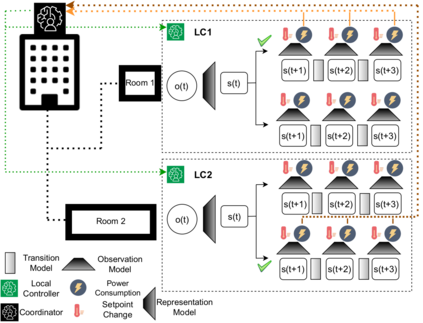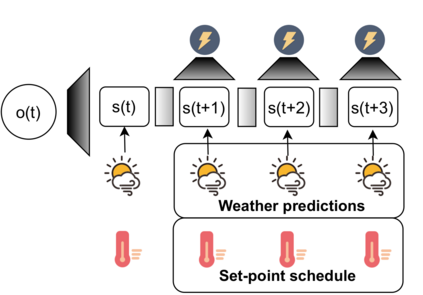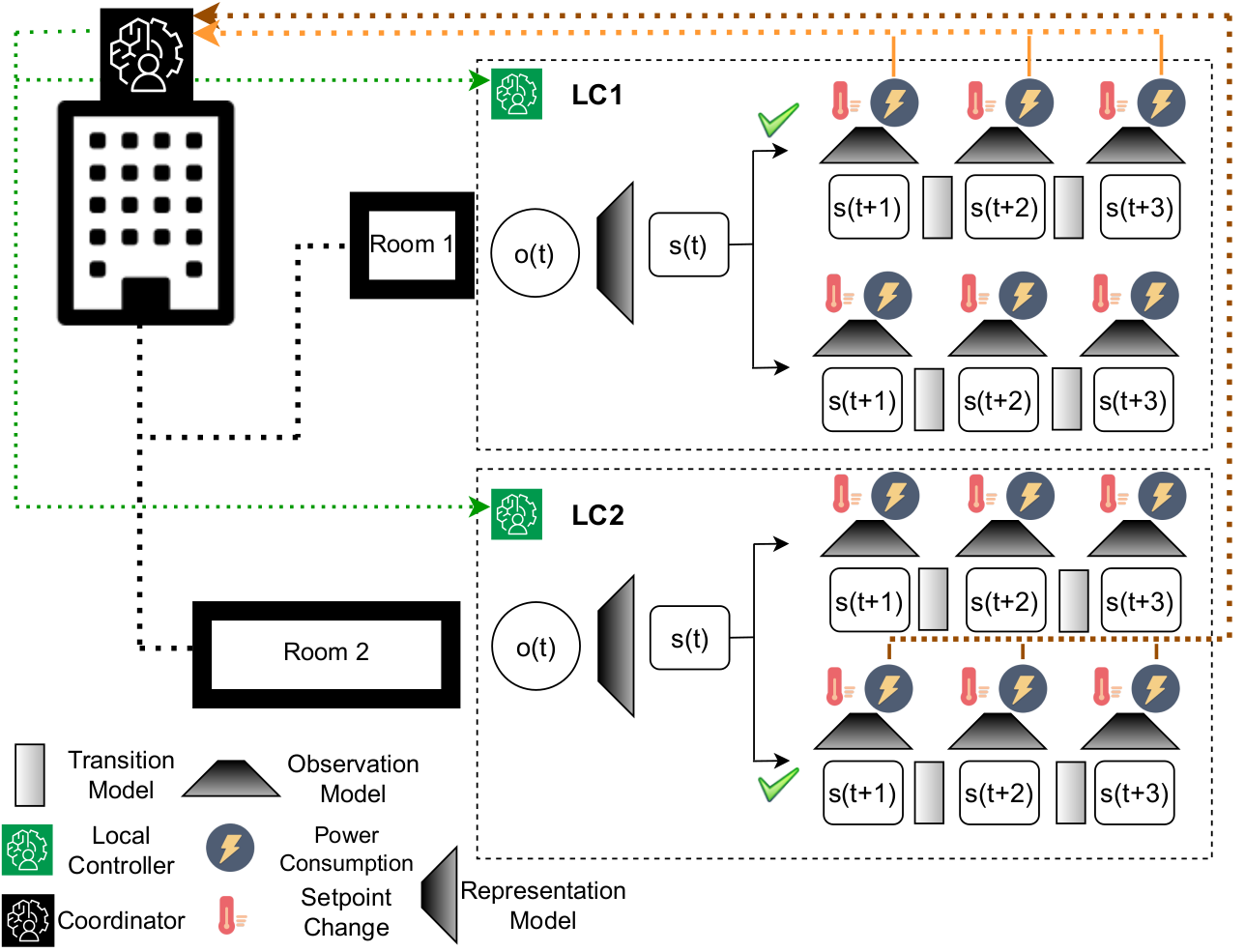The surge in electricity use, coupled with the dependency on intermittent renewable energy sources, poses significant hurdles to effectively managing power grids, particularly during times of peak demand. Demand Response programs and energy conservation measures are essential to operate energy grids while ensuring a responsible use of our resources This research combines distributed optimization using ADMM with Deep Learning models to plan indoor temperature setpoints effectively. A two-layer hierarchical structure is used, with a central building coordinator at the upper layer and local controllers at the thermal zone layer. The coordinator must limit the building's maximum power by translating the building's total power to local power targets for each zone. Local controllers can modify the temperature setpoints to meet the local power targets. The resulting control algorithm, called Distributed Planning Networks, is designed to be both adaptable and scalable to many types of buildings, tackling two of the main challenges in the development of such systems. The proposed approach is tested on an 18-zone building modeled in EnergyPlus. The algorithm successfully manages Demand Response peak events.
翻译:暂无翻译






